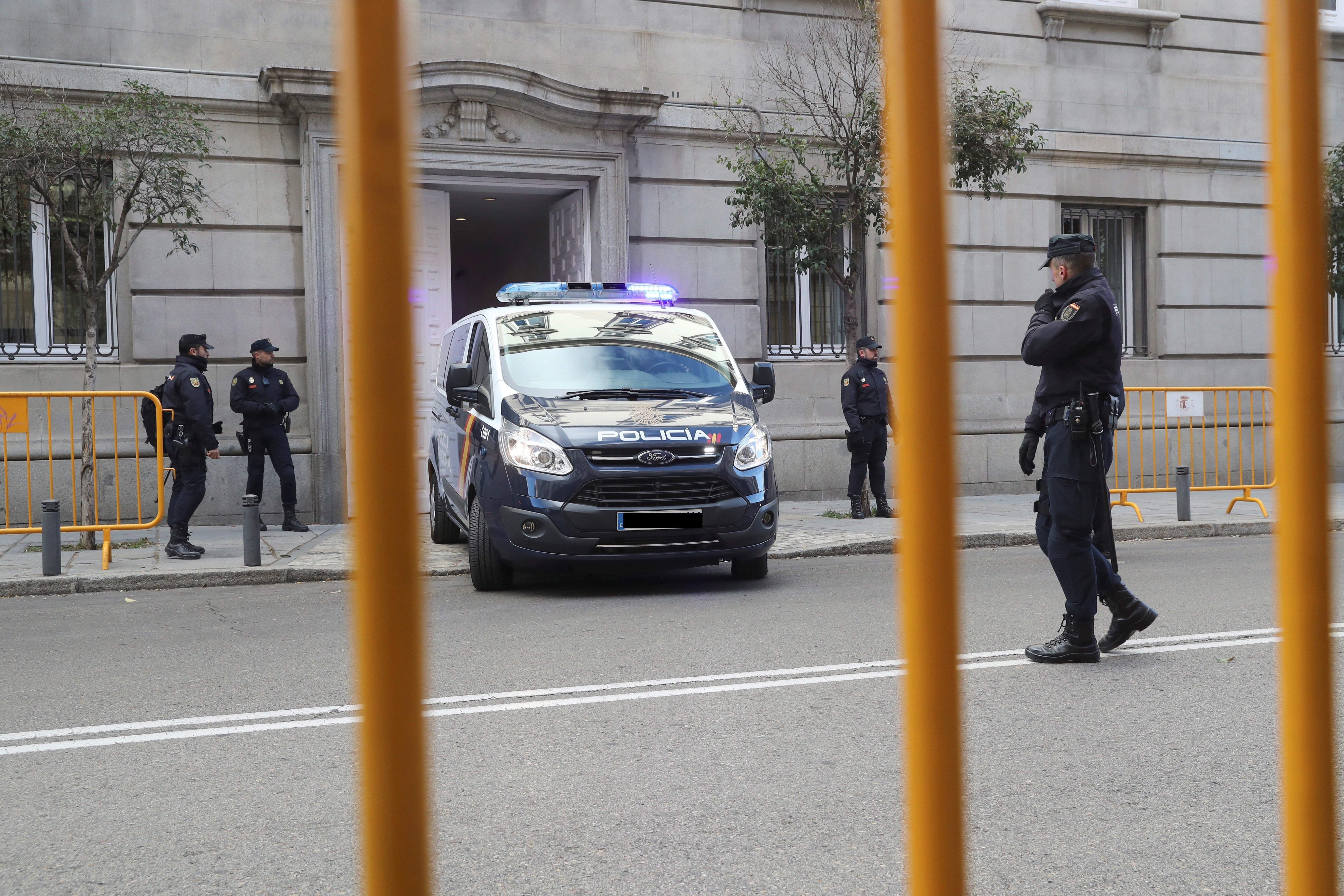Spain's state solicitors presented their own indictment documents for the Catalan independence referendum case on Friday, one hour after the release of the public prosecutors' demands. The new feature were the accusations of sedition which now appear in the accusations of the state solicitors, the Spanish state's official representatives in legal issues, who are appearing in the case in a prosecution separate to that of Spain's public prosecution service.
In its indictment document, the state solicitors list offences of sedition, misuse of public funds and serious disobedience. The sentences demanded for the 18 accused range from 12 years prison to fines.
The state solicitors originally presented their separate prosecution in the case with respect to the alleged misuse of public funds, but they have today taken a stand regarding the rest of the accusations. The document presented which has most weight for the trial is that of the public prosecutors, but the position of the state solicitors is a political gesture to interpret the view of the Spanish government.
According to the state solicitors, the Catalan government played "the role of adopting the executive decisions necessary" to carry out the independence referendum on 1st October. The indictment accuses six members of the government — former vice president Oriol Junqueras, interior minister Joaquim Forn, minister of the presidency Jordi Turull, foreign minister Raül Romeva, territorial minister Josep Rull and labour minister Dolors Bassa— of sedition and misuse of public funds.
The presumed misappropriation of funds —that is, the channeling of public money for illegal purposes— was the means necessary to commit the other, more serious offence, that of sedition, which is defined as rising up "publicly and tumultuously to prevent, by force or illegal means, the application of the law" or compliance with "administrative or judicial resolutions", according to the document.
"It is self-evident to say that the process described [...] would be impossible to carry out without making the corresponding public spending, such as expenses on institutional publicity, organization of the electoral administration, preparation of the electoral register of Catalans abroad, electoral material, payment of international observers, computer applications, venues for vote counting, etc", explains the indictment.
Sentences demanded
Junqueras, Forn, Turull, Romeva, Rull and Bassa "deserve a more severe punishment" due to their status as "authorities" — say the state solicitors in their accompanying press release — for "having induced, sustained and directed the sedition based on their condition as members of the government". For these two criminal offences, a total of 12 years of prison is sought for Junqueras, while 11 and a half years is demanded for the other five. As well, the document seeks their complete disqualification from holding public office for the same periods of time.
In the case of Meritxell Borràs (minister of governance), Carles Mundó (justice) and Santi Vila (enterprise), the state solicitors allege offences of misuse of funds and serious disobedience of public authority. In the first case, for having adopted "agreements for the execution and realisation of the referendum of 1st October and making illegitimate use of public funds"; in the second, for not having systematically followed the resolutions of the Constitutional Court. For these two offences, the indictment asks for seven years imprisonment for the three former ministers, along with 10 years of complete disqualification from holding office, as well as a fine.
The Jordis
Jordi Sànchez and Jordi Cuixart, respective leaders of the two major pro-independence civil groups ANC and Òmnium Cultural, are signalled by the state solicitors' document signals as having committed an offence of sedition that they "also induced, sustained and directed", although without having the same condition of "authority" as the six former members of the Catalan government accused of the same offence. For this reason, the prison sentences demanded for them are marginally shorter: eight years of jail and eight of complete disqualification from office holding.
Their role, according to the document, was to lead the social mobilization "as a means to achieve the ends related to the non-compliance with the law and the disobedience of the administrative and judicial resolutions" which the crime of sedition requires. Their actions led to the occurrence of "acts against legitimate judicial decisions and against the actions of authorities or public civil servants who intended to ensure compliance with those legal rulings".
The Catalan Parliament's Bureau
"The third axis of this presumedly criminal act", according to the solicitors' indictment, consisted of the office holders of the Catalan Parliament who were charged. For the former speaker of the Catalan chamber, Carme Forcadell, a 10 year prison sentence is asked for, along with disqualification from office holding for the same period, as a presumed author of an offence of sedition. Forcadell, like the Catalan government members accused, had the status of "authority" when the events occurred.
Other bureau members, Lluís Maria Corominas, Lluís Guinó, Anna Simó and Ramona Barrufet, face demands for fines and 20 months of disqualification from public office for presumed serious disobedience.
Fines for members of the CUP and Commons
The same offence is also attributed to the former third secretary of Parliament's bureau, Joan Josep Nuet, as well as to the former CUP deputy, Mireia Boya. However, in these last two cases the sentences sought are reduced to fines, along with 16 months of disqualification from office holding.
All of those indicted were obliged to "refuse to admit and paralyze all the proposals contrary to the constitutional order and, in spite of the multiple warnings and personal demands that the Constitutional Court made requiring them to abstain from processing initiatives of this nature, they voted systematically for their admission, opening the possibility for the breaching of constitutional, statutory and legal norms, as well as the judicial rulings that were intended to restore legality". The most important initiatives which were admitted thanks to these bureau members were the law governing the referendum itself and the law managing the legal transition to the Catalan Republic.

